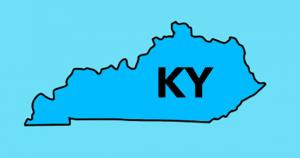Kentucky: Bipartisan bill introduced to add pregnancy to Special Enrollment Period eligibility, bump up Medicaid threshold for some

According to the essential Louise Norris, there are currently just six states where being pregnant in and of itself makes someone eligible for a Special Enrollment Period outside of the official Open Enrollment Period:
In most states, pregnancy does not trigger a special enrollment period. HHS considered this, but clarified in 2015 that they had decided not to include pregnancy as a qualifying event. This means that in most states, the special enrollment period tied to having a baby does not begin until the baby is born.
But state-run exchanges (there are 18 of them as of 2022) can set their own rules for qualifying events and special enrollment periods. Some of them do allow a special enrollment period triggered by pregnancy. This gives a pregnant person access to health coverage during the pregnancy, rather than having to wait until the baby is born to obtain coverage. As of 2022, pregnancy is a qualifying event in the following state-run exchanges:
- New York
- Connecticut
- District of Columbia
- New Jersey
- Maryland
- Maine
In the rest of the country, the special enrollment period is only triggered by the birth, not by the pregnancy (Massachusetts considered legislation in 2019 that would have made pregnancy a qualifying event, but it did not advance in the legislature).
Considering that all six states listed above are considered pretty solidly blue, a new bill introduced in Kentucky with bipartisan support is noteworthy:
Bill Summary
Create a new section of Subtitle 17A of KRS Chapter 304 to require insurers and any exchange to provide a special enrollment period for pregnant individuals; specify requirements for the coverage; require group plan insurers to provide notice of special enrollment rights; amend KRS 304.17A-145 to require health benefit plans that provide coverage for dependents to provide coverage for maternity care; amend KRS 304.17A-220 and 194A.099 to conform with special enrollment requirement; amend KRS 18A.225 and 164.2871 to require the state employee health plan and self-insured state postsecondary education institution group health plans to comply with the special enrollment and maternity coverage requirements; amend KRS 205.592 to allow Medicaid income limit for certain women and children to be increased under certain circumstances; EFFECTIVE, in part, January 1, 2024.
It's also worth noting that it also includes expanded requirements for maternity care, as well as allowing the income threshold for Medicaid eligibility to be raised "for certain women and children" "under certain circumstances."
The actual wording of this last section is:
(1) Except as provided in subsection (2) of this section, pregnant women, new mothers up to twelve (12) months postpartum, and children up to age one (1) shall be eligible for participation in the Kentucky Medical Assistance Program if: (a)[(1)] They have family income up to but not exceeding one hundred and eighty-five percent (185%) of the nonfarm income official poverty guidelines as promulgated by the Department of Health and Human Services of the United States as revised annually; and (b)[(2)] They are otherwise eligible for the program. (2) The percentage established in subsection (1)(a) of this section may be increased to the extent: (a) Permitted under federal law; and (b) Funding is available. ?
In other words, there's not really a specific "higher cap" listed, nor are the exact circumstances under which it would be raised clarified. For that matter, according to Medicaid.Gov, the current income cut-off for the first and third categories in Kentucky is already 195% FPL anyway, so I'm not sure what the 185% FPL part is about. I suppose it would apply to "new mothers up to 12 months postpartum" who I assume are under the category of "Adults (Medicaid) Parent/Caretaker." The current cut-off for this category is 138% FPL thanks to ACA expansion, so I think this raises it to 185% FPL for the mothers only (not the other parent, however).
The bill currently has 7 Democratic cosponsors and 4 Republican ones.
How to support my healthcare wonkery:
1. Donate via ActBlue or PayPal
2. Subscribe via Substack.
3. Subscribe via Patreon.



